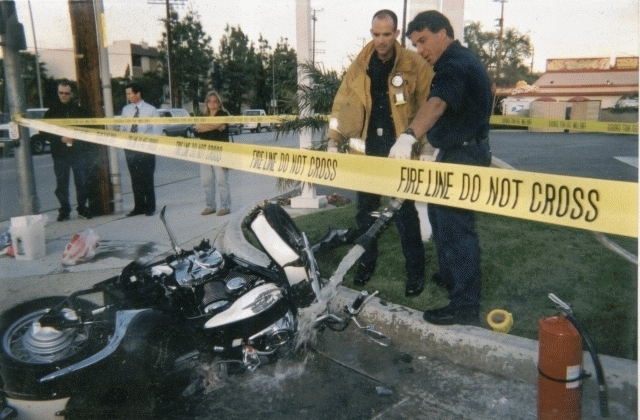A close friend recently told me about his final motorcycle ride. Back when he was in college, he rode his 150cc bike to school each day without a helmet or gloves or really any protective gear. His mom worried for his safety and after hounding him to get a helmet, she finally just up and bought one for him, a nice one, along with some gloves. The next day, equipped with his protective gear, he felt invincible and rode even faster to school, so fast that he entered a turn way over the speed limit and when he hit the rear brake to slow down, the tire lost traction. The bike slid out from under him and into the curb as his helmet and gloved hands brought him to a stop. Plastic gone from the helmet and gloves worn through, but otherwise mostly uninjured, he picked up his wrecked bike and walked it back home and drove himself to school. Half way through his class, the shock of his near death experience finally came over him and he went home.
This story exemplifies “moral hazard”: as we reduce risk in one way, we tend to compensate by increasing risk elsewhere. Many blamed this human response for the banking crisis of 2008. As bankers felt increasingly that the government would save them if they failed, they took on even more risks. All of us have a certain risk tolerance, so when we take precautions in one way, we’re more willing to take other risks that compensate. Don’t believe it? Think about how much more carefully we drive when the seatbelt is broken and we can’t put it on, or when there is snow on the road. Why don’t we drive that way all the time?
Yet this affects us even when we’re not talking about risk. Imagine we just worked out hard, had a good run or went for a long bike ride. We feel the exhaustion in our muscles and know we’re going to feel sore in the morning. We went above and beyond (Yea us!). Now we get to the break station and someone left a box of fresh donuts or hot pizza. We’re hungry AND we seriously worked it this morning, so we rationalize that we deserve a treat. Of course, this mitigates the benefits we get from our exercise.
Change is hard and we resist it strongly. When our world changes, we tend to respond by compensating and pushing toward keeping things as they are, whether we mean to or not. When we try to change systems and structures to make them better, we should be aware that people’s natural inclination will be to find ways to keep things more like they were. Often times, we are our own worst enemy to the changes we want to make for the better.
Photo Credit: Chris Yarzab cc

Leave a Reply